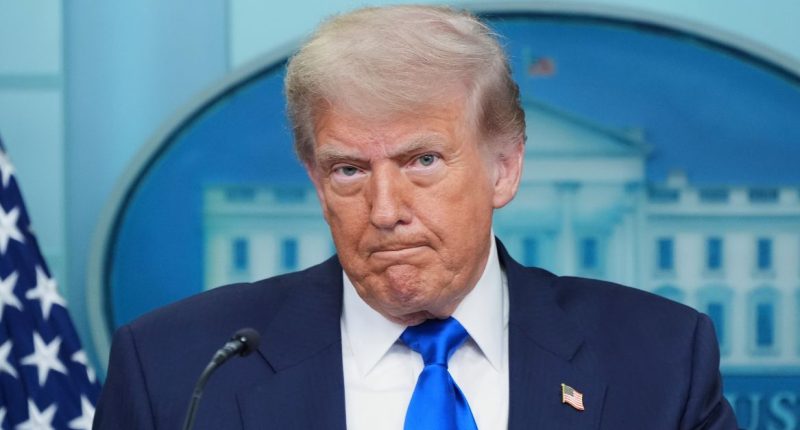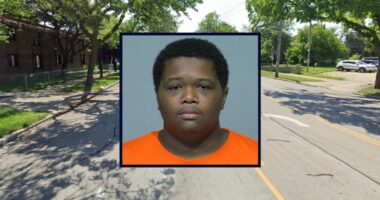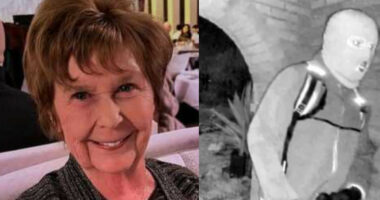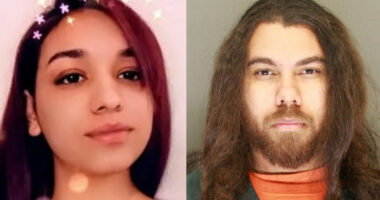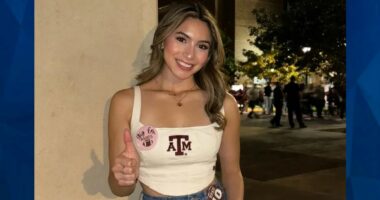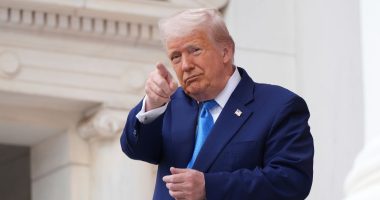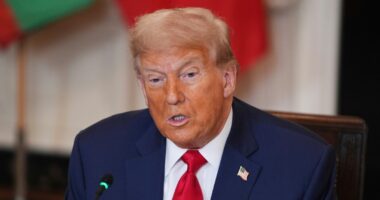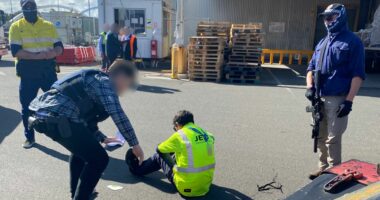Share this @internewscast.com
President Donald Trump listens during a briefing with the media, Friday, June 27, 2025, at the White House in Washington (AP Photo/Jacquelyn Martin).
A federal judge in Manhattan has recently prohibited the Trump administration from imposing sanctions on two U.S. citizens, who are law professors associated with the International Criminal Court (ICC).
On April 15, Cardozo Law Professor Gabor Rona and CUNY School of Law Professor Lisa Davis initiated a 31-page lawsuit against President Donald Trump and other federal officials regarding an executive order from February. This order applies sanctions on the ICC, restricts certain interactions with designated ICC officials, and threatens civil and criminal penalties for violations.
The lawsuit argues that Trump’s order “threatens to unconstitutionally impose civil and criminal penalties” on the plaintiffs for “providing education, advice, training, information, analysis, and other services to or for the benefit of the Prosecutor of the ICC,” supporting the ICC’s investigation and prosecution of war crimes, crimes against humanity, and genocide.
Those threatened penalties, the plaintiffs point out, include up to 20 years behind bars for the legal education services they provide.
Contemporaneously with the lawsuit, the plaintiffs asked the Southern District of New York to issue a preliminary injunction.
In late July, U.S. District Judge Jesse M. Furman, an appointee of Barack Obama, largely granted the request by issuing a permanent injunction for all defendants except Trump himself.
“In law, as in life, two wrongs do not make a right,” the judge remarked, referencing past attempts by the Trump administration to sanction ICC-related lawyers, professors, and activists.
Judge Furman highlighted that the latest move against the ICC is “substantially similar” to prior efforts, using “the exact language” previously deemed “likely unconstitutional” by another court.
On Monday, the judge closed the case by outlining the particulars of the injunction in a relatively terse 3-page judgment and order.
In sum, the court order bars the Trump administration from “enforcing the civil or criminal penalty provisions of the International Emergency Economic Powers Act” against the law professors on the basis of certain enumerated “education, training, analysis, and analytical services provided by them to or for the benefit of any person” mentioned in, and putatively in violation of, the executive order.
Specifically, the Trump administration cannot penalize the law professors for any of the following activities:
• Submitting or contributing to the submission of evidence, argument, testimony or amicus curiae briefs to the International Criminal Court;
• Engaging in advocacy in support of the ICC, to include contributing to publications (including online journals, blogs, podcasts, or other publicly available media) relating to the ICC or investigations or prosecutions before it;
• Organizing or participating in speaking engagements relating to the ICC or investigations or prosecutions before it;
• Discussing the ICC or its work in public and private fora, including law school courses and other academic settings;
• Communicating with the ICC to facilitate job placements in the ICC, or in roles supporting the ICC’s prosecutions and investigations;
• Drafting policy documents or white papers for the ICC’s Office of the Prosecutor (“OTP”);
• Providing guidance or advice to the ICC regarding policies and investigating, charging, and prosecuting crimes, or applications for arrest warrants;
• Liaising with victims of, and witnesses to, crimes under investigation or prosecution in the ICC for the purpose of providing support to the OTP;
• Training investigators, analysts, prosecutors, and other staff within the OTP;
• Serving on OTP advisory committees;
• Convening, organizing, or participating in expert panel workshops and other similar events to assist the OTP; and
• Presenting to judges and domestic prosecutors concerning issues pertaining to the ICC.
In response to an inquiry about the court’s latest order, Rona directed Law&Crime to a statement from his attorneys.
Andrew Loewenstein, the Foley Hoag attorney who served as lead counsel, praised the ruling for “vindicating the First Amendment rights” of his clients and said the decision “allows them to resume providing critical support for the ICC’s investigation and prosecution of some of the world’s most heinous crimes.”
In mid-July, a federal court in Maine enjoined the government from enforcing the executive order against two human rights advocates who work with the ICC’s OTP – again, on First Amendment grounds.
